Couch with Sofa - Perfect Living Room Furniture Combinations
Combining a couch with a sofa creates versatile living room seating arrangements that balance style, comfort, and functionality. This furniture pairing approach allows for flexible seating options, accommodating both intimate conversations and larger gatherings while maximizing your living space's potential. Understanding how to successfully pair these pieces transforms ordinary rooms into inviting, well-appointed spaces.
This comprehensive guide explores the art of combining couches with sofas, examining configuration options, style coordination, and practical considerations. Whether you're furnishing a new home or refreshing your current living space, learning to effectively pair these essential furniture pieces ensures your living room meets both your aesthetic preferences and daily comfort needs.
Our Top Couch with Sofa Combinations
⚠️ AFFILIATE DISCLOSURE: This website contains affiliate links. As an Amazon Associate, we earn from qualifying purchases. If you make a purchase through these links, we may receive a small commission at no additional cost to you. Read our full affiliate policy.
Couch and Sofa Combination Comparison
Which Couch and Sofa Combination Meets Your Needs?
🏆 Best Overall: Coordinated Set
Matching Sofa and Loveseat
💰 Best Value: Complementary Pieces
Style-Coordinated Combination
⭐ Premium Choice: Designer Combination
Curated Designer Pairing
Combination Style Comparison
- Matching Sets: Create cohesive, coordinated looks with guaranteed style harmony
- Complementary Pieces: Offer design flexibility and personalized style expression
- Contrasting Styles: Add visual interest through deliberate design contrasts
- Proportional Balance: Ensure pieces relate well in scale and visual weight
- Functional Pairing: Combine different seating types for varied uses
Couch with Sofa Combination Advantages & Limitations
Understanding the benefits and considerations of pairing a couch with a sofa helps create successful living room arrangements:
✅ Combination Advantages
Flexible Seating: Accommodate different group sizes and conversation configurations easily.
Visual Interest: Create dynamic room layouts with varied but complementary pieces.
Functional Variety: Offer different seating experiences within the same space.
Space Definition: Help define conversation areas in open-concept living spaces.
Style Layering: Opportunity to incorporate multiple design elements harmoniously.
❌ Combination Limitations
Space Requirements: Need adequate room dimensions for comfortable arrangement.
Coordination Challenges: Achieving visual harmony requires careful selection.
Cost Considerations: Purchasing two substantial pieces represents significant investment.
Arrangement Complexity: Finding optimal placement can be challenging in some rooms.
Maintenance Consistency: Different pieces may require varied care approaches.
Practical Value Assessment
Combining a couch with a sofa offers excellent value for households seeking versatile seating solutions and design flexibility. While requiring thoughtful coordination and adequate space, this approach creates living environments that adapt to various activities and social situations while expressing personal style preferences effectively.
Tips for Choosing the Perfect Couch and Sofa Combination
Selecting and pairing a couch with a sofa requires attention to proportion, style harmony, and functional requirements. These guidelines will help you create successful combinations:
8 Essential Factors for Successful Pairing
1. Consider Room Size and Layout
Evaluate your space dimensions and traffic patterns before selecting pieces. Ensure the combination fits comfortably without overwhelming the room or obstructing natural pathways.
2. Maintain Proportional Balance
Choose pieces that relate well in scale and visual weight. The secondary piece should complement rather than compete with the primary seating element.
3. Establish Style Consistency
Maintain design cohesion through shared elements like leg style, arm design, or overall silhouette. This creates harmony while allowing for individual character.
4. Coordinate Color and Pattern
Use color relationships to create visual connection. Consider matching upholstery, complementary colors, or patterned accents that tie the pieces together.
5. Ensure Comfort Compatibility
Select pieces with similar seat heights and cushion firmness for consistent comfort experience. Consider how each piece will be used in daily life.
6. Plan Functional Relationships
Consider how the pieces will work together for conversation, entertainment, or relaxation. Arrange them to facilitate their intended uses effectively.
7. Evaluate Material Harmony
Choose upholstery materials that complement each other in texture, durability, and maintenance requirements. Consider how materials work together visually and practically.
8. Test Arrangement Options
Experiment with different configurations before finalizing your selection. Consider multiple arrangement possibilities to ensure flexibility.
Recommendations Based on Room Type
- Apartments: Sofa with apartment-sized couch or loveseat
- Family Rooms: Durable sofa with comfortable complementary couch
- Open Concept: Pieces that define spaces without blocking sightlines
- Media Rooms: Comfort-focused combinations with varied seating options
- Entertaining Spaces: Configurations that facilitate conversation
Frequently Asked Questions About Couch and Sofa Combinations
What is the difference between a couch and a sofa?
While often used interchangeably, couches typically refer to more casual, comfortable pieces for lounging and relaxing, while sofas are generally more formal and structured. Couches often have softer cushions and casual designs, while sofas may feature more structured silhouettes and formal upholstery. However, modern furniture design has blurred these distinctions significantly, and the terms are frequently used synonymously in contemporary interior design contexts.
How do I arrange a couch with a sofa in my living room?
Create a balanced arrangement by positioning the larger piece (usually the sofa) against the main wall and the smaller couch perpendicular or opposite. Ensure adequate walking space between pieces and maintain conversation-friendly distances. Consider the room's focal point and traffic patterns when planning your arrangement for both functionality and aesthetic appeal. L-shaped arrangements work well for conversation, while parallel placement can define separate areas in open-concept spaces.
Should my couch and sofa match exactly?
Matching exactly creates a coordinated look, but complementary pieces can add visual interest. Consider using similar styles but different colors, or vice versa. The key is maintaining some design consistency through shared elements like leg style, cushion shape, or overall proportion. This approach allows for personality while maintaining cohesion in your living space. Many designers recommend choosing pieces from the same collection or ensuring they share at least two common design elements.
What size couch works best with a standard sofa?
A loveseat or apartment-sized couch typically pairs well with a standard sofa. The secondary piece should be proportionally smaller but substantial enough to balance the arrangement. For standard sofas around 84-96 inches, loveseats of 60-72 inches work well. Ensure both pieces share similar seat heights for comfortable use and visual harmony. The secondary piece should be approximately two-thirds the length of the primary sofa for optimal proportional relationship.
How much space do I need for a couch and sofa combination?
A typical couch and sofa combination requires a room of at least 12x14 feet for comfortable arrangement. Allow 30-36 inches between pieces for walking space and 14-18 inches from walls for cleaning and airflow. Consider the room's traffic patterns and ensure the arrangement doesn't block natural pathways or access to other furniture and features. For larger combinations or additional furniture pieces, consider rooms of 14x16 feet or larger to maintain comfortable proportions and functionality.
Conclusion
Successfully combining a couch with a sofa creates living room environments that balance aesthetic appeal with practical functionality. This furniture pairing approach offers versatile seating solutions that adapt to various social situations and daily activities while expressing personal style preferences through thoughtful design coordination.
By considering proportional relationships, style harmony, and functional requirements, you can create combinations that enhance your living space's comfort and visual appeal. Whether opting for perfectly matched sets or carefully curated complementary pieces, the key lies in maintaining design consistency while meeting your specific lifestyle needs and spatial constraints.
Ready to Choose Your Couch and Sofa Combination?
Explore the selection of couch with sofa combinations above and discover the ideal pairing for your living space. Each combination has been evaluated to help you find furniture that creates harmonious, functional, and stylish seating arrangements tailored to your specific needs and preferences.
Related Articles You Might Like
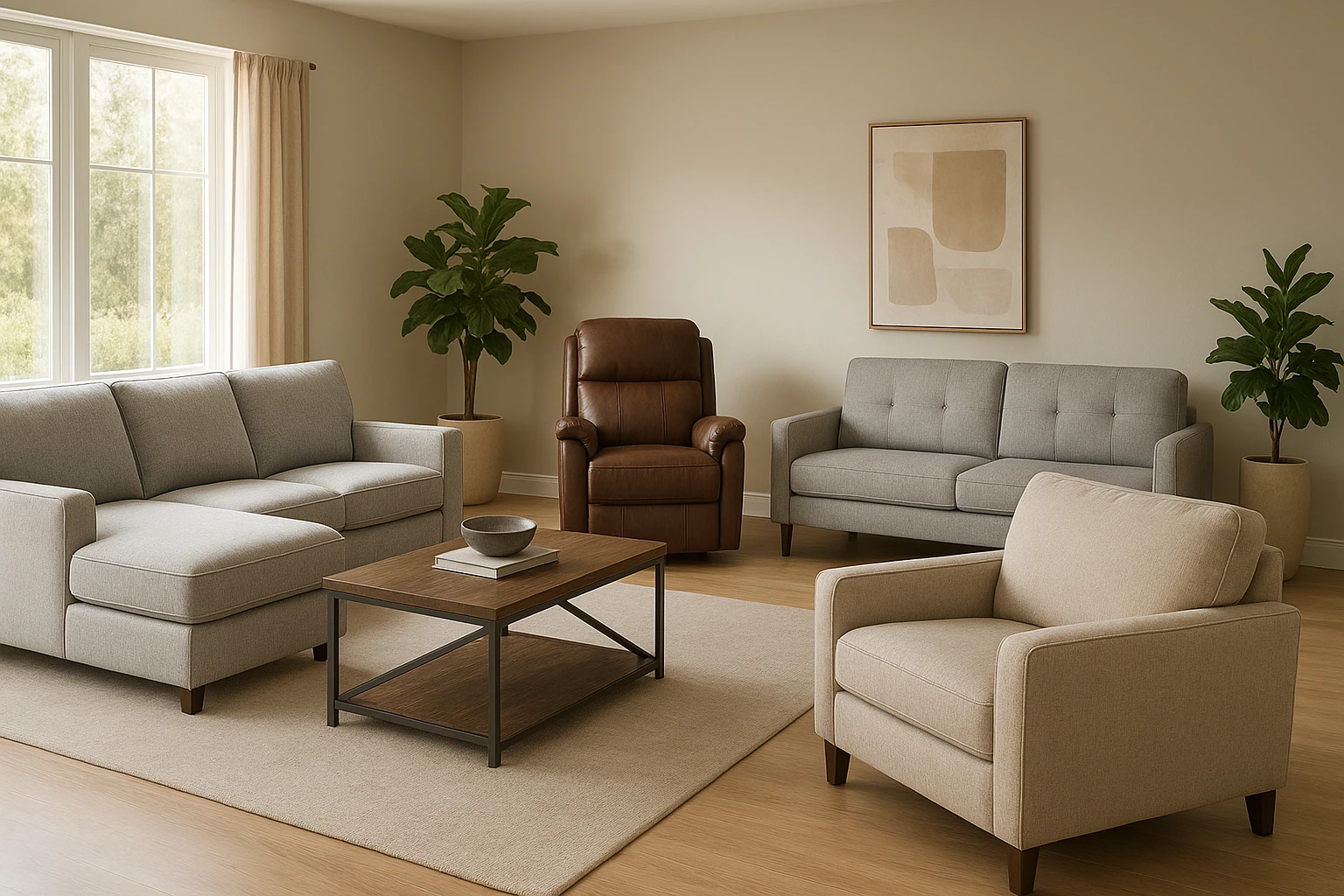
Explore various sofa styles and learn which designs work best for different spaces, needs, and interior design preferences.
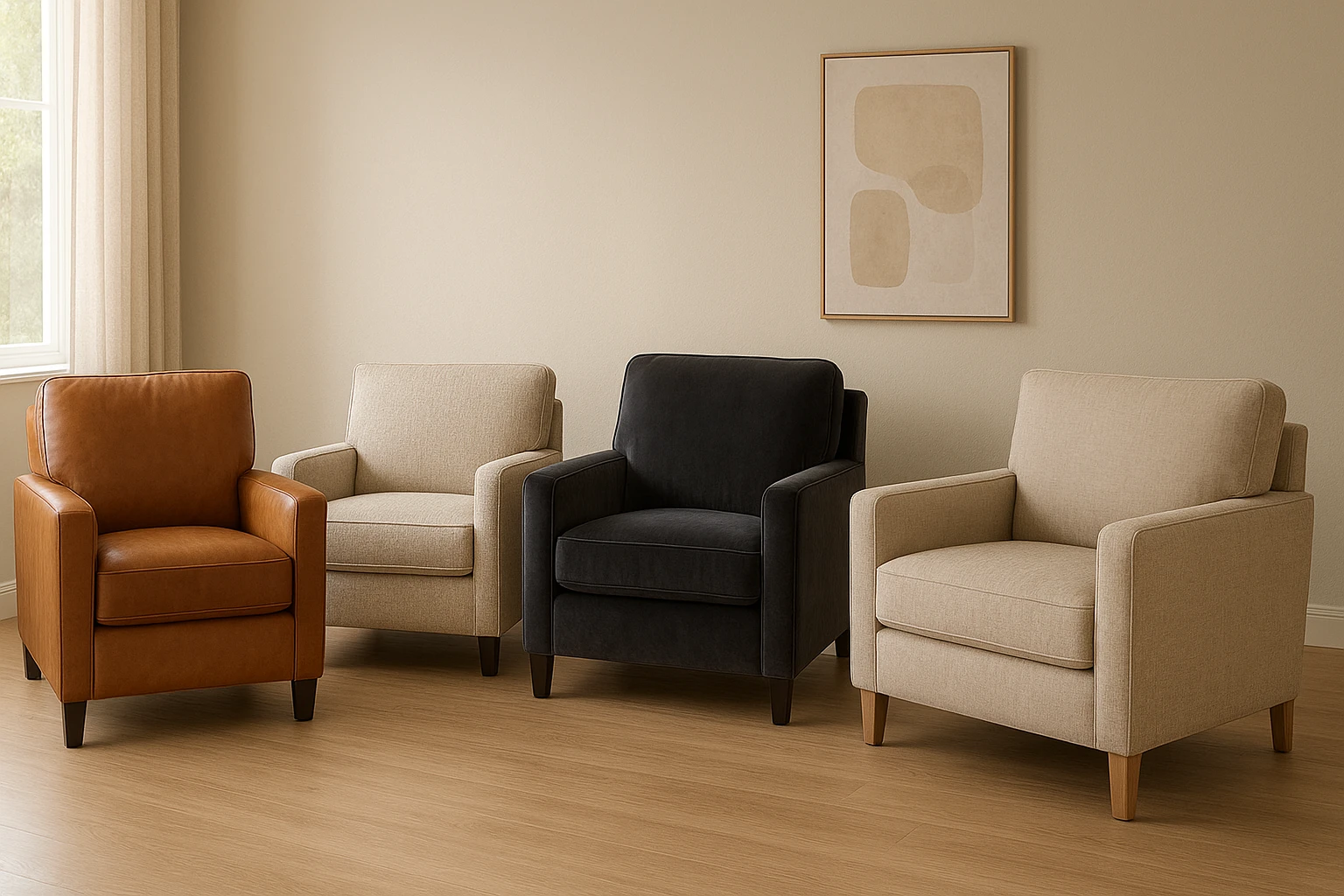
Detailed analysis of sofa upholstery options to help you choose the right material for your lifestyle and maintenance preferences.
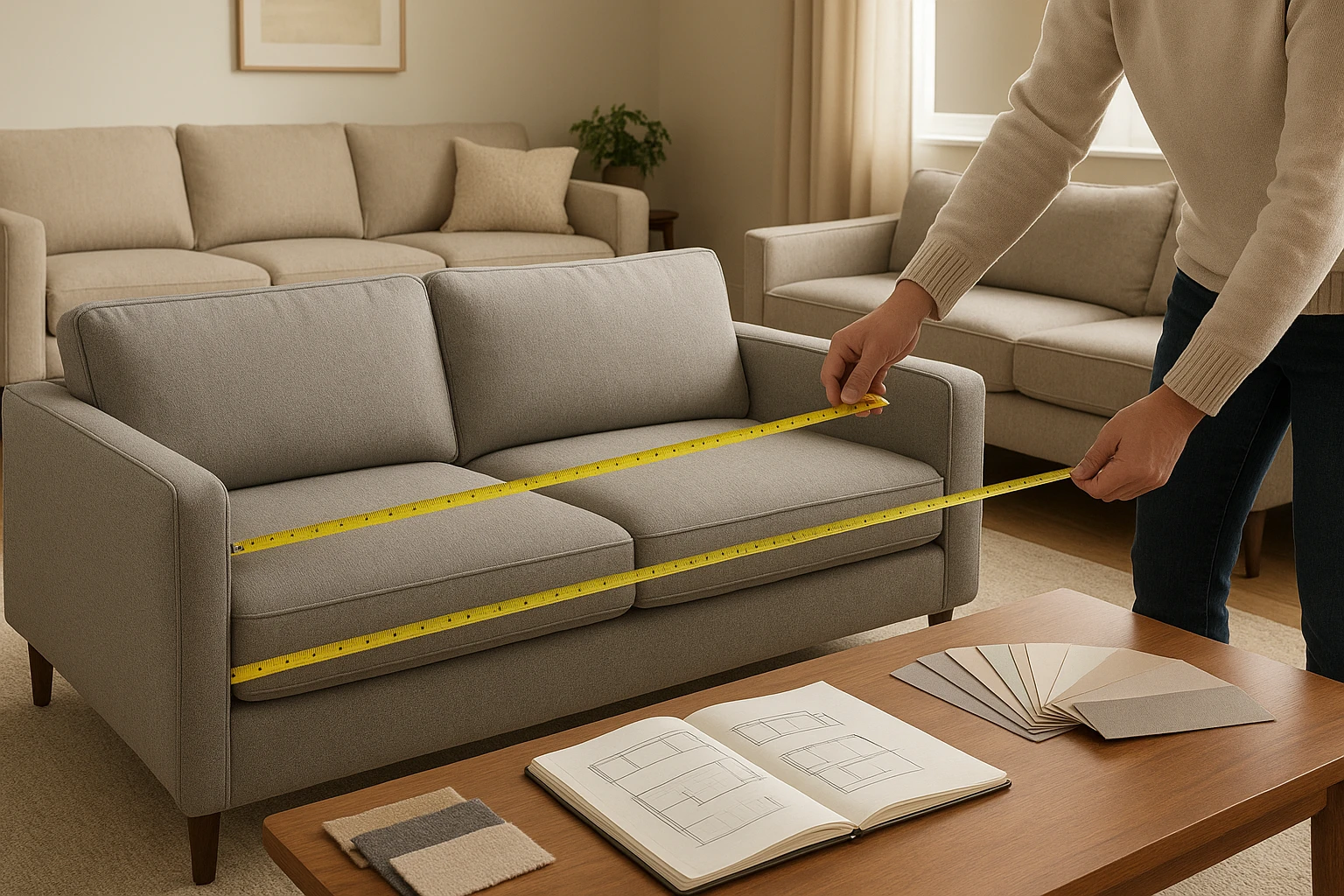
Step-by-step instructions for selecting the ideal sofa based on room dimensions, usage patterns, and design requirements.
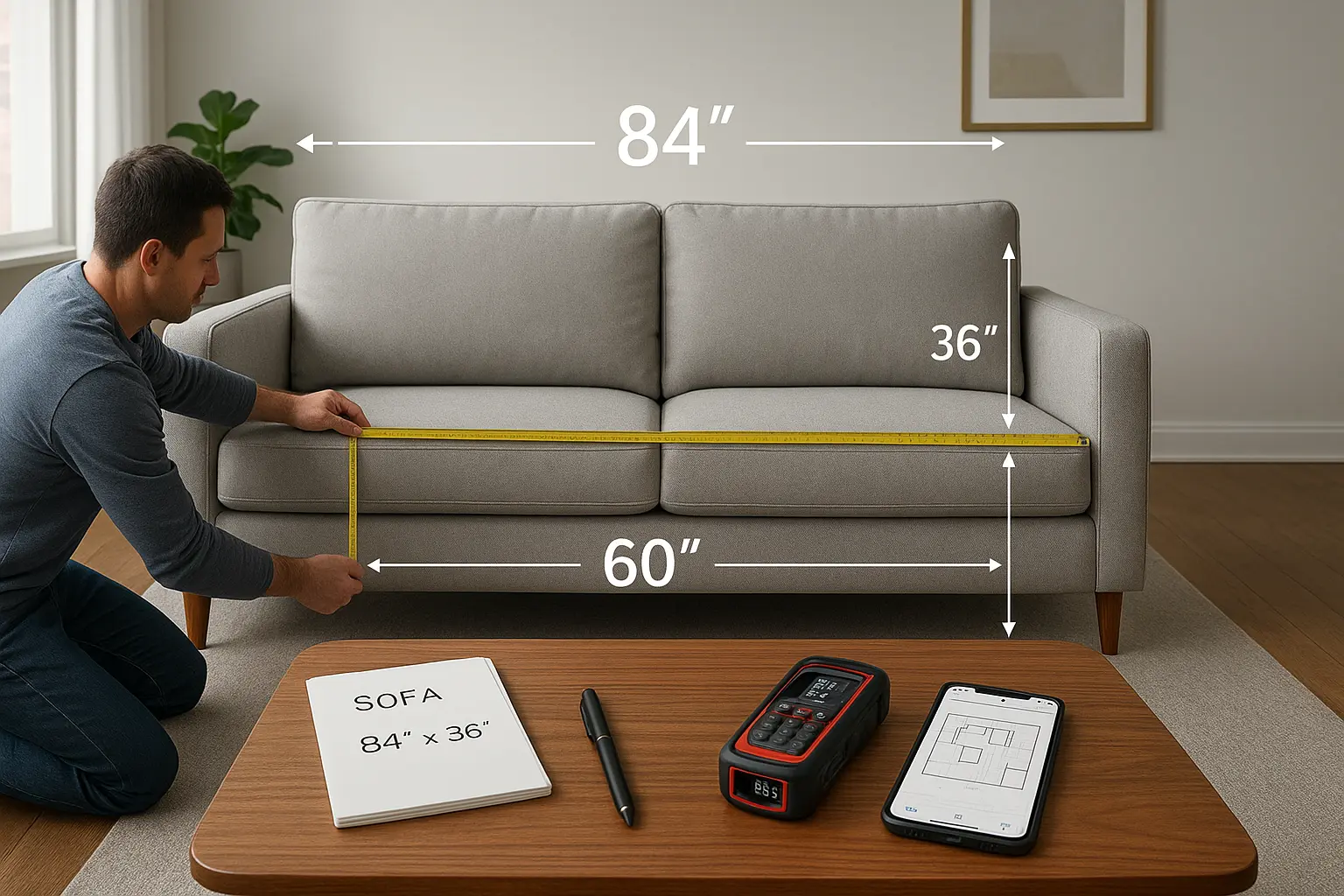
Learn proper measurement techniques and space planning for selecting sofa dimensions that fit your room perfectly.
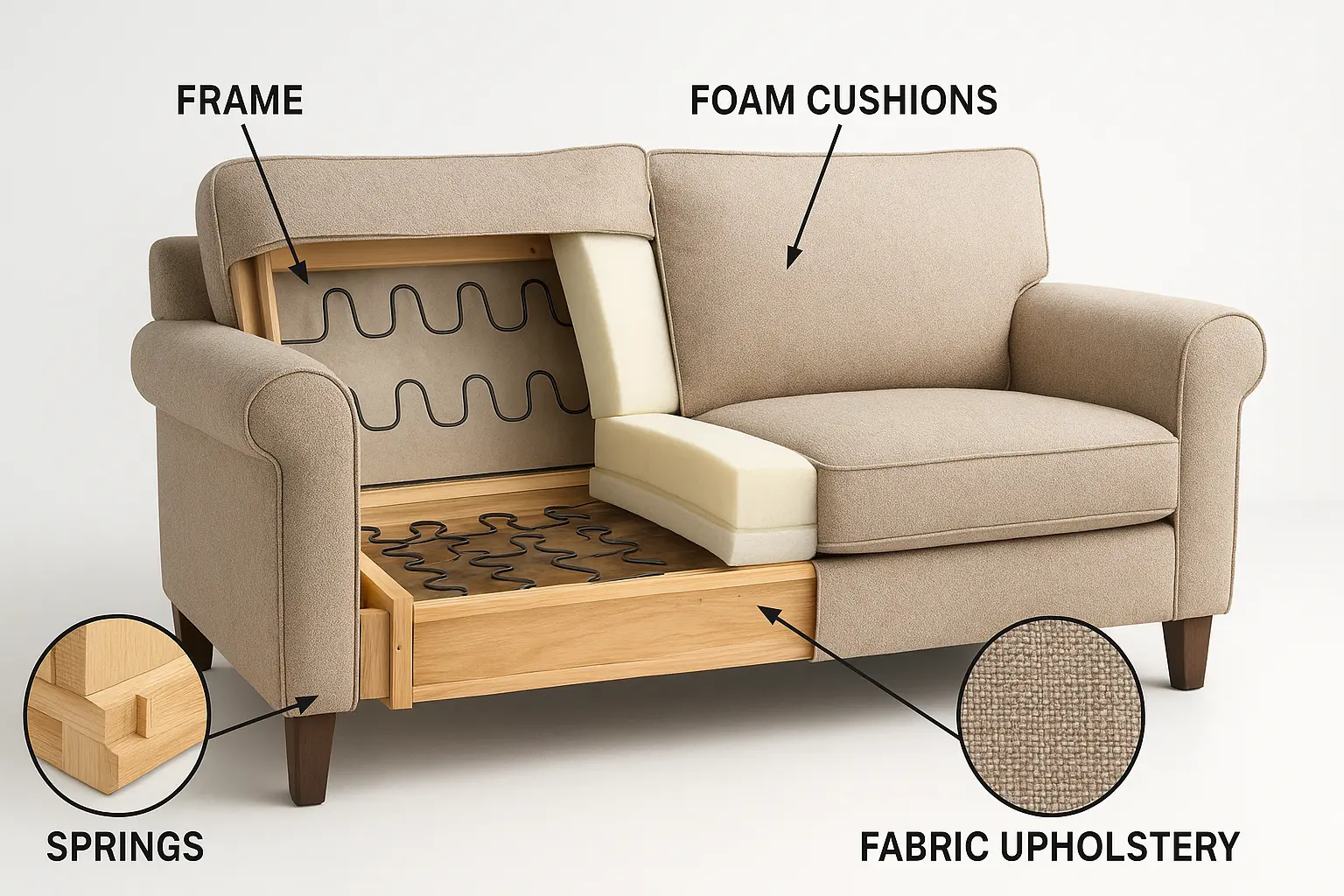
Understand sofa construction elements and how different materials and techniques affect comfort, durability, and quality.

Essential advice for purchasing sofas online, including measurement guidelines, fabric selection, and avoiding common errors.